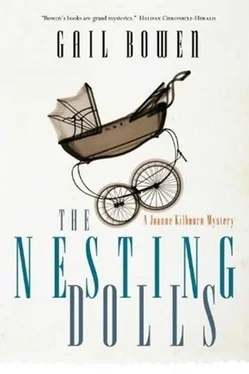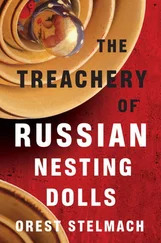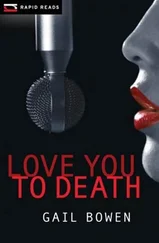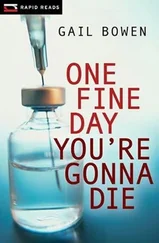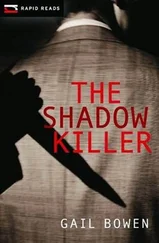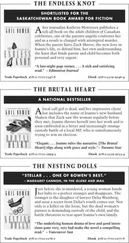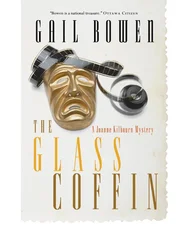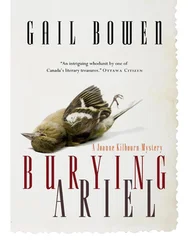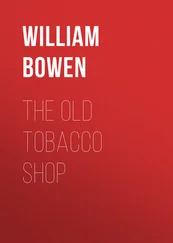“Shit,” he said.
The expletive conjured up a student usher. “We have special seating at the front,” he said. “Just follow me.”
As he always did when he was singled out because of his paraplegia, Zack bristled. I touched his shoulder. “This place is already packed. We can stay here and stare at the back of people’s heads, and I can stand for the whole concert, or you can swallow your pride and we’ll have the best seats in the house.” Zack gave me a sharp look but he wheeled off after the young man.
We had just reached our places when the lights dimmed and the processional began. As the student orchestra played the familiar opening of “Adeste Fideles,” the audience rose and the choirs entered, wearing academic gowns with satin yokes in the school colours, black and gold. The choirs sang in Latin, and their young voices stirred memories of my own school days. The service of lessons and carols was a familiar one to me, but Luther College had a large number of international students and so the selections from the Gospels were read in the first languages of students from Germany, Poland, China, France, Japan, Nigeria, and Korea, and the carols sung were those that had been sung for generations by celebrators of Christmas in those countries. When the bell-ringers moved into place on stage, Zack took my hand.
Gracie rang with ebullient loose-limbed grace; Taylor was surprisingly focused; but Isobel, her mother’s daughter, shook her bell with furrowed brow and tight lips, bent on a perfect performance. As they finished, Zack whipped out his camera and snapped three forbidden photographs before I batted down his arm.
“Against the rules,” I said.
“I’ve only been a father for two years. I have to make up for lost time.” He snapped a couple more pictures, then returned the camera to his pocket.
The service ended. Students began moving down the aisle with baskets of candles, which they asked the person at the end of each row to distribute. The students then lit the candles of the people with aisle seats and invited them to light the candle of the person next to them. Faces softened by candlelight, the audience joined the choirs in the recessional “Joy to the World.” It was a transcendent moment but, as Robert Frost knew, nothing golden can stay. The last line of the carol was sung; the candles were extinguished; the gym lights were flicked back on, and we were, once again, fragmented into our separate selves.
Despite the blizzard, no one seemed in a rush to leave. The adults were chatting; students were clinging to one another with the desperation of those who knew it might be five minutes before they could start texting again. Finally, I spotted Isobel, Taylor, and Gracie. They’d changed back into their street clothes and were standing near an exit, laughing and surrounded by friends. I pointed them out to Zack. “Now there’s the picture I want.”
“Let me get a little closer,” he said. He pushed his wheelchair forward and began snapping. He was just in time to capture a disturbing tableau. The woman we’d seen that afternoon on the Wainbergs’ front path approached the girls. She had the baby seat with her; she appeared to say something to Isobel, then she handed her the baby seat and disappeared through the exit.
We were with the girls in seconds. “What’s going on?” I said.
Gracie was the first to speak. “That woman just gave her baby to Isobel.”
Isobel shook her head. “She didn’t just ‘give’ the baby to me. She made sure she knew who I was first. She asked if my mother was Delia Margolis Wainberg, and when I said yes, she said, ‘Tell her I couldn’t do it. This child belongs with her.’ That’s when she handed me the baby seat.”
I looked down at the child. He was dressed in a Thomas the Tank Engine snowsuit, and his toque was pulled down over his ears. He was perhaps six months old with the kind of intelligent gaze people tag as “alert.” I squatted down beside him. “How are you doing, big guy?”
He raised his arms and kept his dark eyes focused on mine. I unbuckled him and picked him up.
Taylor came close. Her adolescent cool had deserted her. “His mother is coming back, isn’t she?” she said, and her voice was small and scared.
As Zack wheeled in for a closer look, he squeezed Taylor’s arm, but he didn’t answer her question. My husband was more charmed by children than many men I knew, but when he gazed at the baby, he wasn’t smiling. His eyes moved to me. “Let me hold him, would you?” Zack took the child, removed his toque, and ran his hand over the baby’s springy black curls. He held the child out in front of him and examined him closely. “Did you girls get a good look at the baby’s mother?” he asked.
“Not me,” Gracie said. “I was too busy watching Declan Hunter embrace Taylor with his eyes. Sooooo romantic.”
Taylor shot Gracie a look that would have curdled milk, then turned back to us. “I saw the mother,” she said. “She looked like Isobel.”
Isobel’s blue eyes were troubled, but as always, she was precise. “Not the way I look now – the way I’ll probably look when I’m older.”
Then, for the second time that night, the gym was plunged into darkness. This darkness didn’t inspire awe – simply confusion. There was a moment of stunned silence, some sputterings of nervous laughter, and then, obeying a response that had become second nature to us all, we reached for our cells. Within seconds, the gym was dotted with rectangles of light that darted through the gloom, fireflies for our electronic age.
The baby began to cry and I reached down and took him from Zack. The child’s hair smelled of Baby’s Own soap.
“This certainly complicates matters,” Zack said, and I could hear the edge in his voice.
“They’ll get the power back,” I said. “We’ll just have to sit tight.”
“Great advice,” he said. “Except while we’re sitting tight, that child’s mother is going to disappear without a trace.”
Fifteen minutes later, the school, and reportedly most of the city, was still without light. A spirit of cheerful anarchy had seized the crowd. Plunged into darkness in the company of friends and cellphones, the students, their voices shakily arrogant, split the silence with what Walt Whitman described as the barbaric yawps of the young. The adults were resigned. Blizzards and blackouts are part of a Saskatchewan winter. Everyone knows that, sooner or later, blizzards stop; power returns; streets are lit; traffic lights function – and life goes on.
Enjoying the moment was a sensible option, but not for Zack and me. As we waited by the door through which the baby’s mother vanished, we were isolated by a growing fear and frustration. Zack was accustomed to deciding on an outcome and making it happen, but that afternoon, nothing was breaking his way. He couldn’t get either Delia or Noah on the phone and Police Inspector Debbie Haczkewicz’s private voicemail told him she would call when time permitted.
The room was growing noticeably cooler. I zipped up the baby’s snowsuit, put his toque back on him, then wrapped him in the blanket that had been in the baby seat. Swaddled and held close, he fell asleep on my shoulder.
“One possibility, and it’s chilling, is postpartum psychosis.” Zack spoke softly as if to protect the child in my arms from hearing what he was about to say. “I had a client who heard voices telling her she had to kill her baby. She tried to get help, but everyone told her the ‘baby blues’ were common, and the feelings would pass. The voices became more and more insistent, so finally she threw her baby off the Albert Street Bridge.”
My heart clenched. “What happened to the mother?”
Читать дальше
